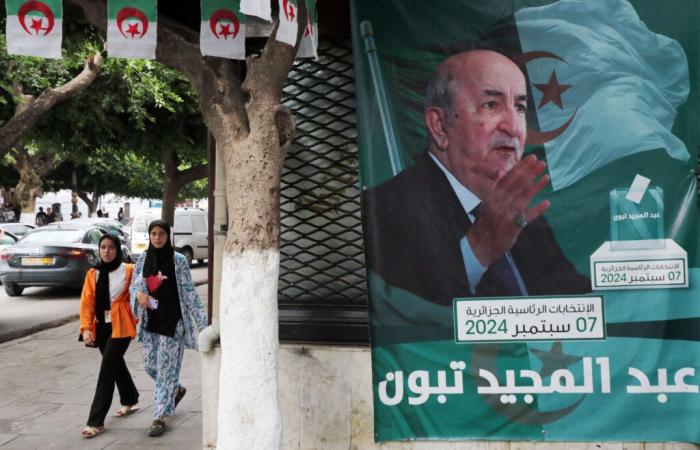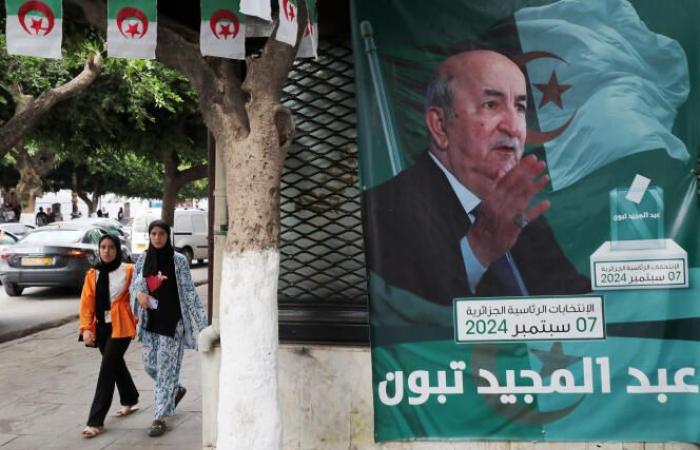Lined up on the sofa in the living room with a breathtaking view of the Mediterranean, Sonia and her two sisters remain silent in front of their mother who scrutinizes their index finger. Stained with blue ink, it is proof of their visit to their polling station at the town hall of Baïnem, west of Algiers, during the presidential election held on Saturday, September 7. The first sister, pushed by a rumor about administrative reprisals targeting abstainers, went to get a stamp on her voter card. She voted blank, unlike the other two, who, driven by the same fear, have, while they are at it, “voted for “uncle Tebboune” in order to obtain social housing!”they joke. “And how will your uncle Tebboune know that you voted for him?”pretends to question their mother, skeptical.
During the election campaign, President Abdelmadjid Tebboune promised 2 million additional social housing units to Algerians, while one and a half million homes, work on which had been underway for several years, have already been delivered during his first term (2019-2024), according to the Ministry of Housing. Himself a former holder of this portfolio, the re-elected head of state knows the importance of this housing, particularly to reduce the rhetoric of the Islamists among the most deprived. A form of purchasing social peace, which did not prevent Algerians from demanding in the streets, in 2019, the departure of President Abdelaziz Bouteflika, with the popular Hirak movement, since strongly repressed. “If the party is over and I have to keep quiet or go to jail, I might as well take advantage of the system.”judges Sonia.
Read also | Article reserved for our subscribers In Algeria, little enthusiasm for a presidential election without suspense
Add to your selections
President Abdelmadjid Tebboune has also promised voters income increases, while the reform of the very costly commodity subsidy system planned for 2022 seems to have been forgotten. Once in power, if public funds allow, the state will provide. Since 2019, several tens of billions of euros have been invested by the state in seawater desalination plants, the extension of the railway network, the mining industry and other structuring projects. However, all are under threat of a collapse in world hydrocarbon prices, as was the case in 2016.
In a report published in May, the World Bank sought to be reassuring about the “dynamism” of the Algerian economy. Since 2021, its growth has been maintained “at a rate close to 4%, in a context where countries were struggling to achieve positive growth”commented the resident representative of the financial institution, Kamel Braham. The third largest economy in Africa with a gross domestic product (GDP) expected at $267 billion in 2024, according to the International Monetary Fund, Algeria has rebuilt a safety net – it had $69 billion in foreign exchange reserves at the end of 2023. But the ongoing work of diversifying its economy, which would allow leaders to break free from their dependence on gas and oil, is not as advanced as Mr. Tebboune claims.
You have 50.83% of this article left to read. The rest is reserved for subscribers.







